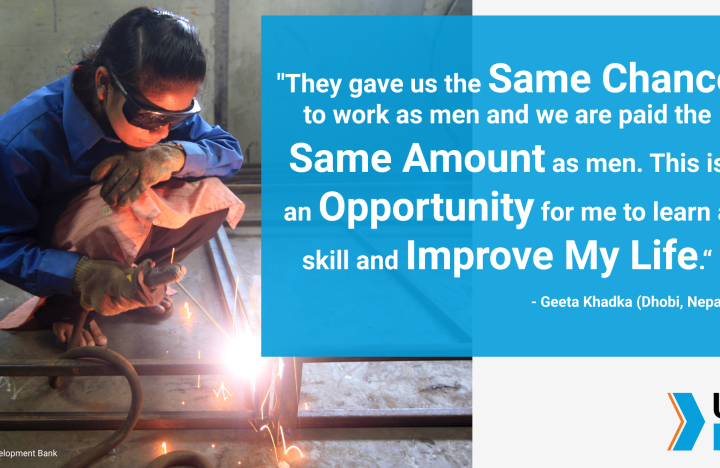
#GenerationEquality for Women Around the World
Many women do not have equal rights and opportunities. International development projects help close the gender gap and empower women around the world.
Click here to view list of current and historical notices on UNDB with a focus on women empowerment.
A few success stories from Development Bank projects:
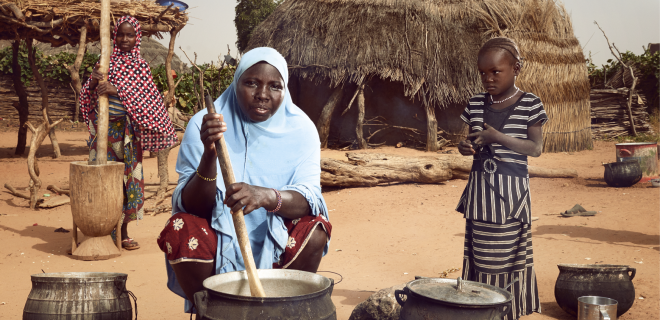
Niger
The agricultural sector in Niger has low levels of farm input use and productivity. Women working the farms are used to threshing, hulling, and grinding millet by hand, which makes for a tiresome workday. In addition, women have been found to be less productive farmers than men in Sub-Saharan Africa; a reality that has negative implications for women and their households.
Childcare duties, social norms, and cash constraints are some of the many reasons female farmers are behind in productivity. The Ministry of Population, Advancement of Women and Protection of Children has made it its priority to lighten women’s workloads, so that they can achieve similar farm yields as men.
In order to tackle the big gender gap in Africa’s agricultural sector, many different socioeconomic reasons and context-specific factors were considered. One solution that was supported by the World Bank, was to provide women access to mills, hullers, and water sources to lighten their load. With more support to level the playing field, women are able to increase their contribution to the agricultural sector enabling rural households to lift themselves out of poverty.
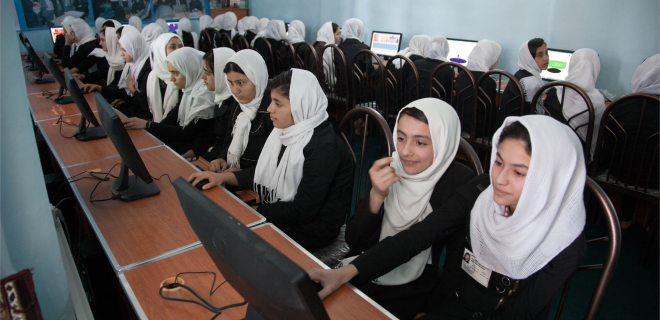
Afghanistan
After four decades of conflict and violence in Afghanistan, Afghans needed resources to increase equitable access and quality of education – especially for girls.
Through the Education Quality Improvement Programme (EQUIP), communities have changed their view on education, schools were built from the ground up, and the quality of education has improved tremendously.
Thanks to EQUIP, institutions like the Female Experimental High School (pictured) have gained popularity as more parents choose to send their daughters to school. These students are enjoying the use of resources in libraries and computer labs that make lessons more engaging.
EQUIP was implemented in 2008 by the Ministry of Education and is supported by the World Bank and Afghanistan Reconstruction Fund.
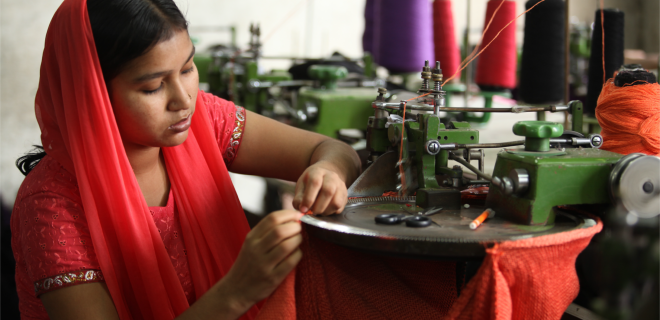
Bangladesh
Every year close to 2 million young people enter the workforce in Bangladesh. In order to achieve the goal of becoming a developed nation by 2041, Bangladesh needs a well-trained labour force.
Through the government Skills for Employment Investment Programme (SEIP), young women like Yanur Begum (pictured) are trained with new skills to help them get jobs in booming industries.
The programme trains nearly 800,000 youths who learn new skills that help in building a better future for Bangladesh. 33% of those trained under SEIP and have acquired jobs are women, enabling them to become more financially independent.
The programme also gives a number of young women the opportunity to pursue a fully funded post-graduate education. SEIP is supported by the Asian Development Bank to further the government's skills development initiatives.
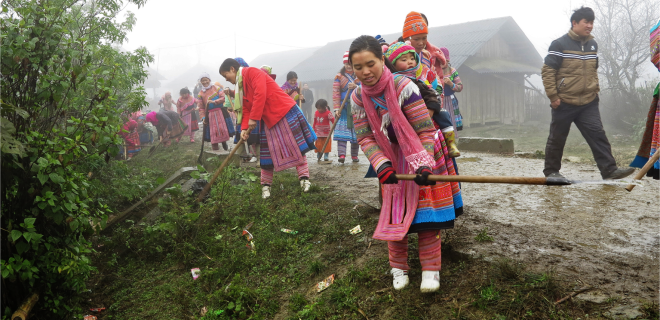
Vietnam
Poor road conditions in Vietnam hinder transport and mobility. As a result, travelling is difficult, inconvenient, and costly. Access to markets, off-farm economic opportunities, and social services are limited for those living in poor rural communities.
The Third Rural Transport Project empowers and trains women to maintain rural roads – a typically male-dominated job. The project supports women in breaking free from tradition and gives them an opportunity to earn an additional source of income.
Local women’s unions have formed self-maintenance teams to work on the roads in their respective villages, which has fostered a sense of ownership and bond between the women in the village who enjoy contributing to the community.
The Third Rural Transport Project is funded by DFID-UK and was supported by the World Bank.
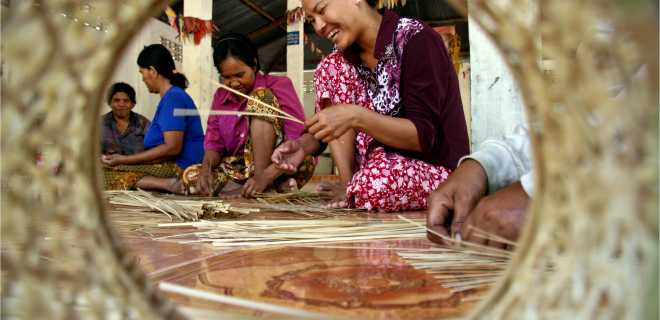
Cambodia
Cambodia The Asian Development Bank (ADB) worked with Cambodia to support women’s social and economic empowerment in an effort to reduce poverty. The Women’s Development Center (WDC) Project in Siem Reap, Cambodia enables women to learn new vocational skills and acquire social training.
Thanks to the WDC, women in rural areas have a chance to support themselves and their families with their new skills. Vocational skills training uplifts women and gives them the confidence to make a living through entrepreneurship.
The WDC was established by the Ministry of Women’s Affairs in 2008 with support from the Asian Development Bank.
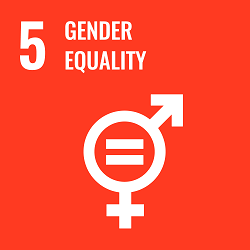
Sustainable Development Goals
UNDB is committed to the Sustainable Development Goals (SDGs) Decade of Action.
Goal 5: Gender equality is not only a fundamental human right, but a necessary foundation for a peaceful, prosperous and sustainable world.
UNDB and its partners understand that providing women and girls with equal access to education, health care, decent work, and representation in political and economic decision-making processes will fuel sustainable economies and benefit societies and humanity at large.
International development projects have made a significant impact in the implementation of new legal frameworks regarding women's equality in the workplace and the eradication of harmful practices targeted at women, which are crucial to ending the gender-based discrimination prevalent in many countries around the world.


